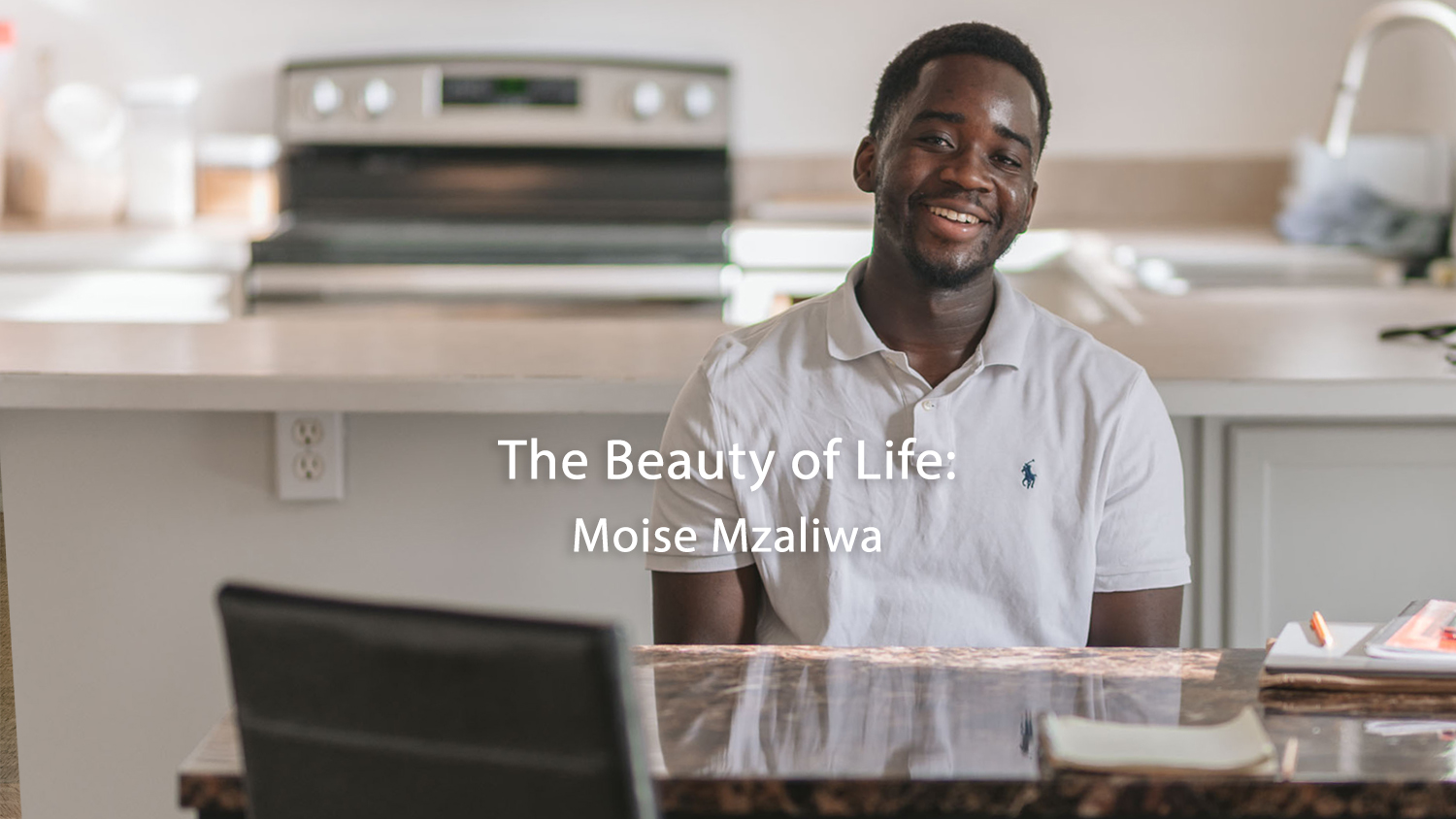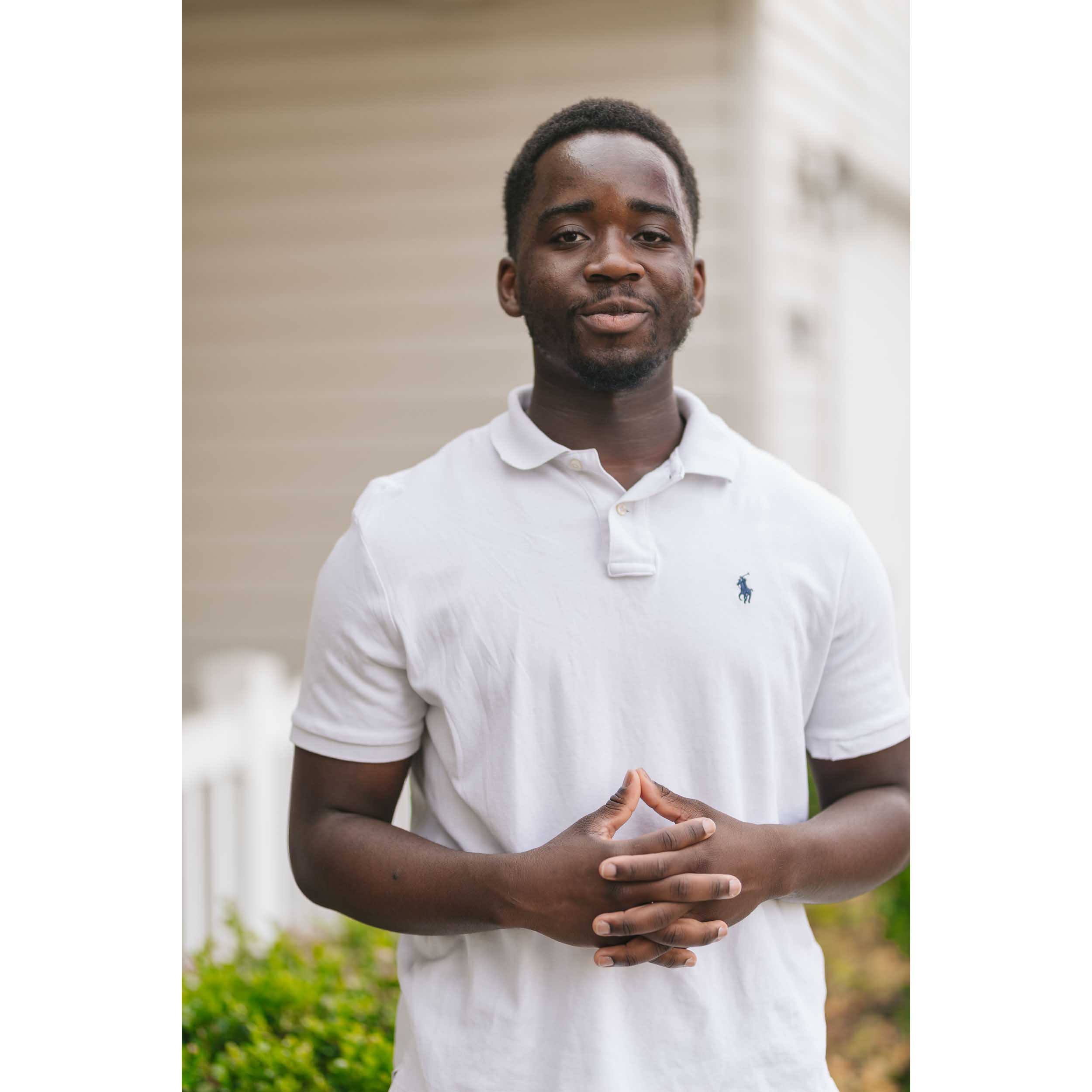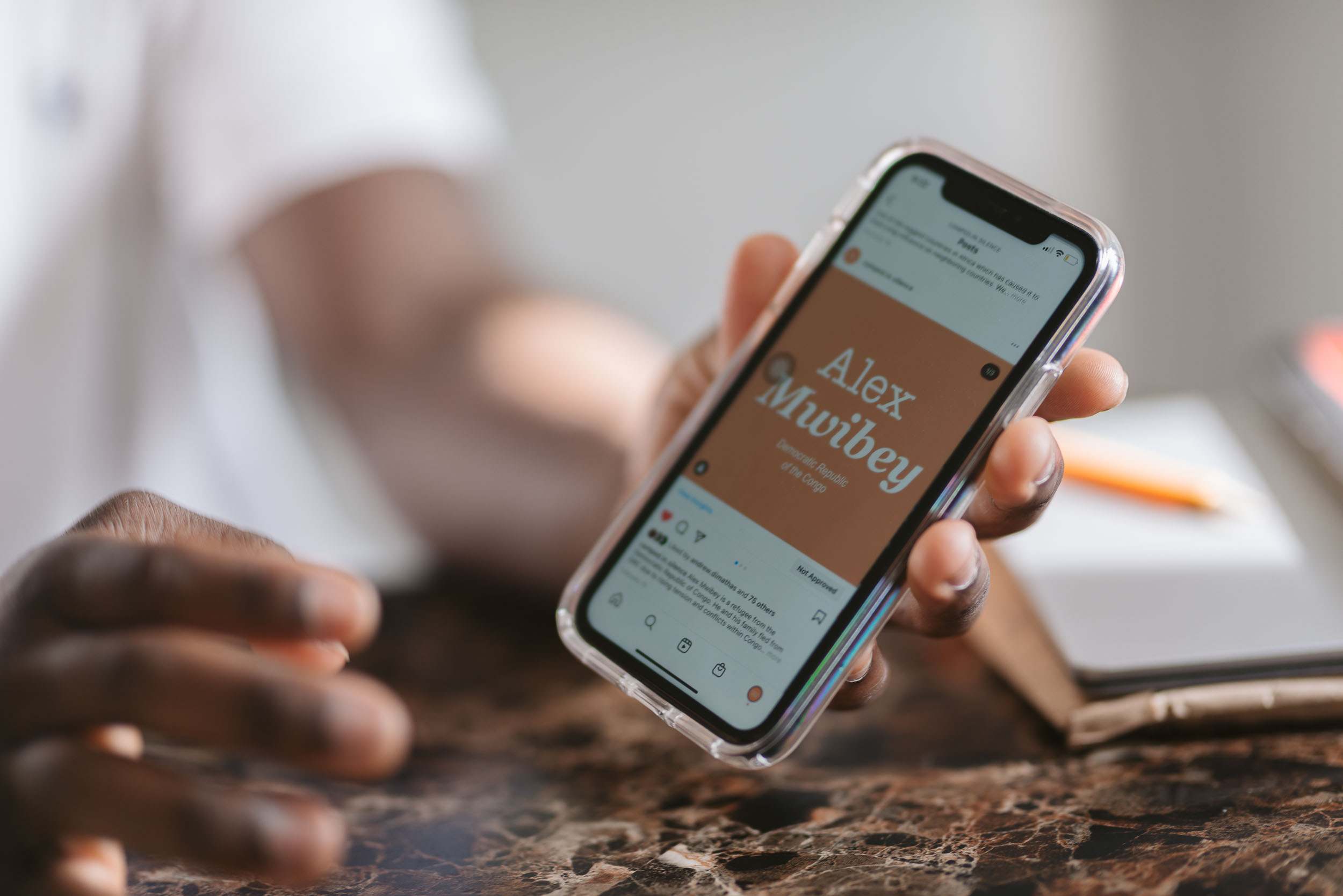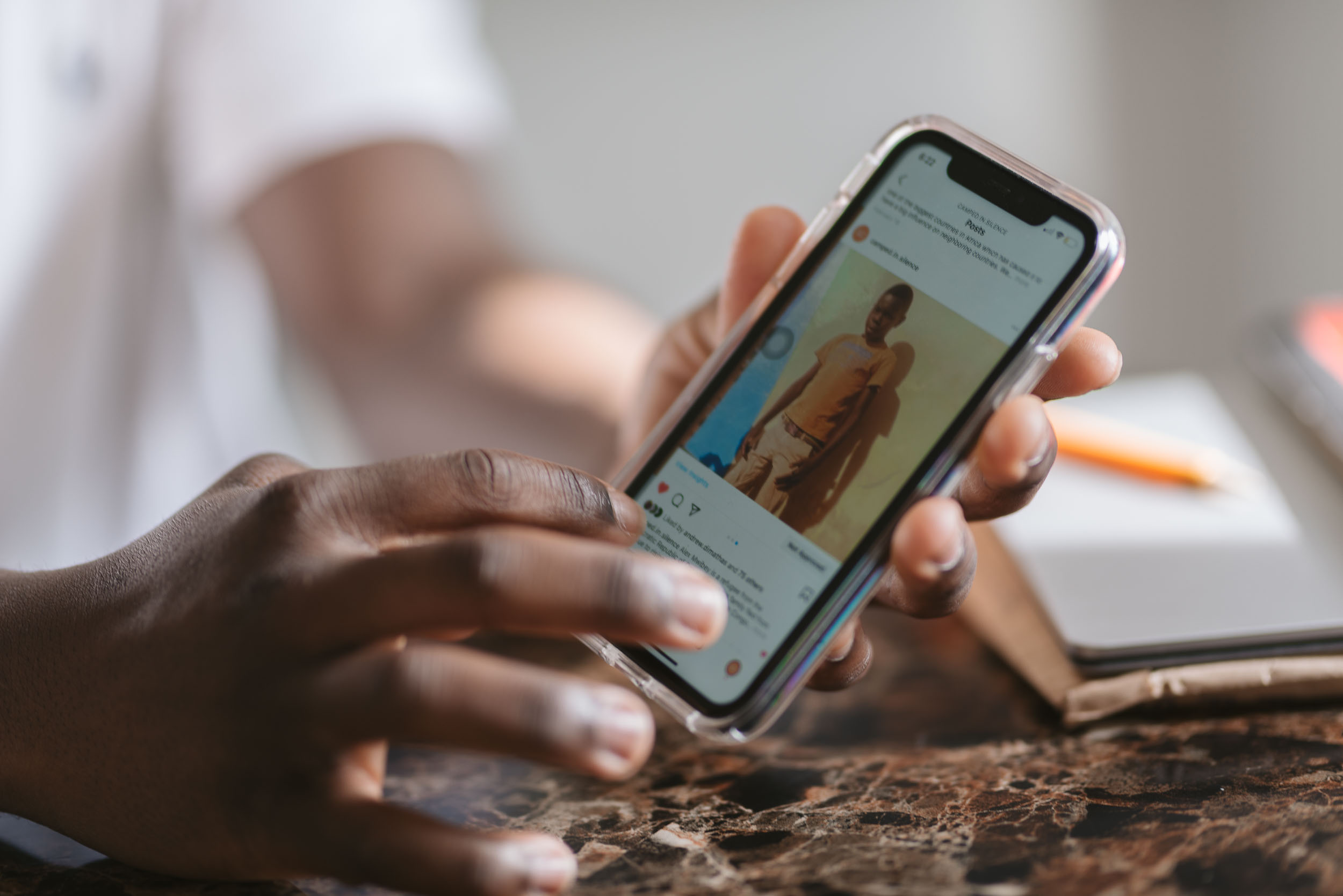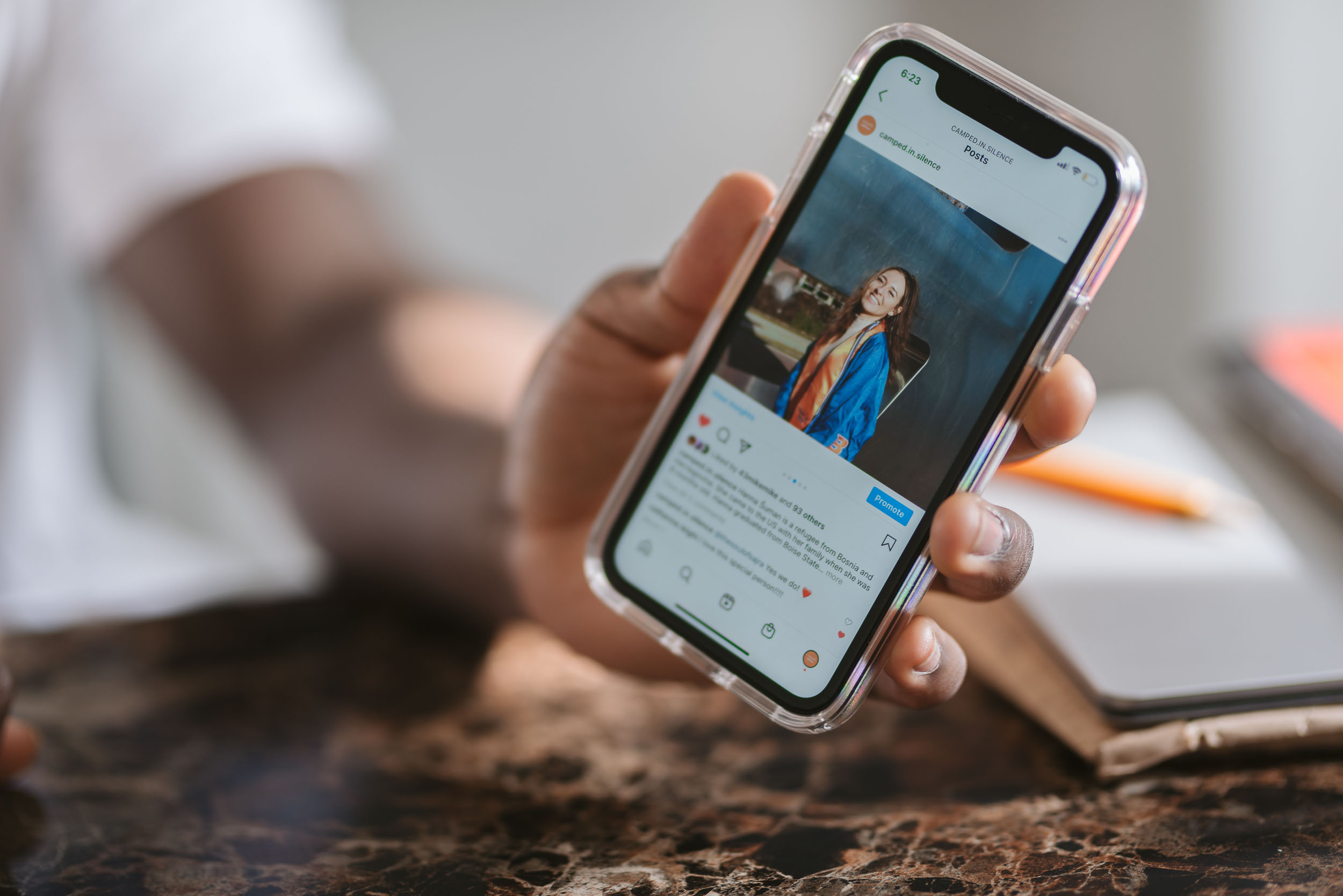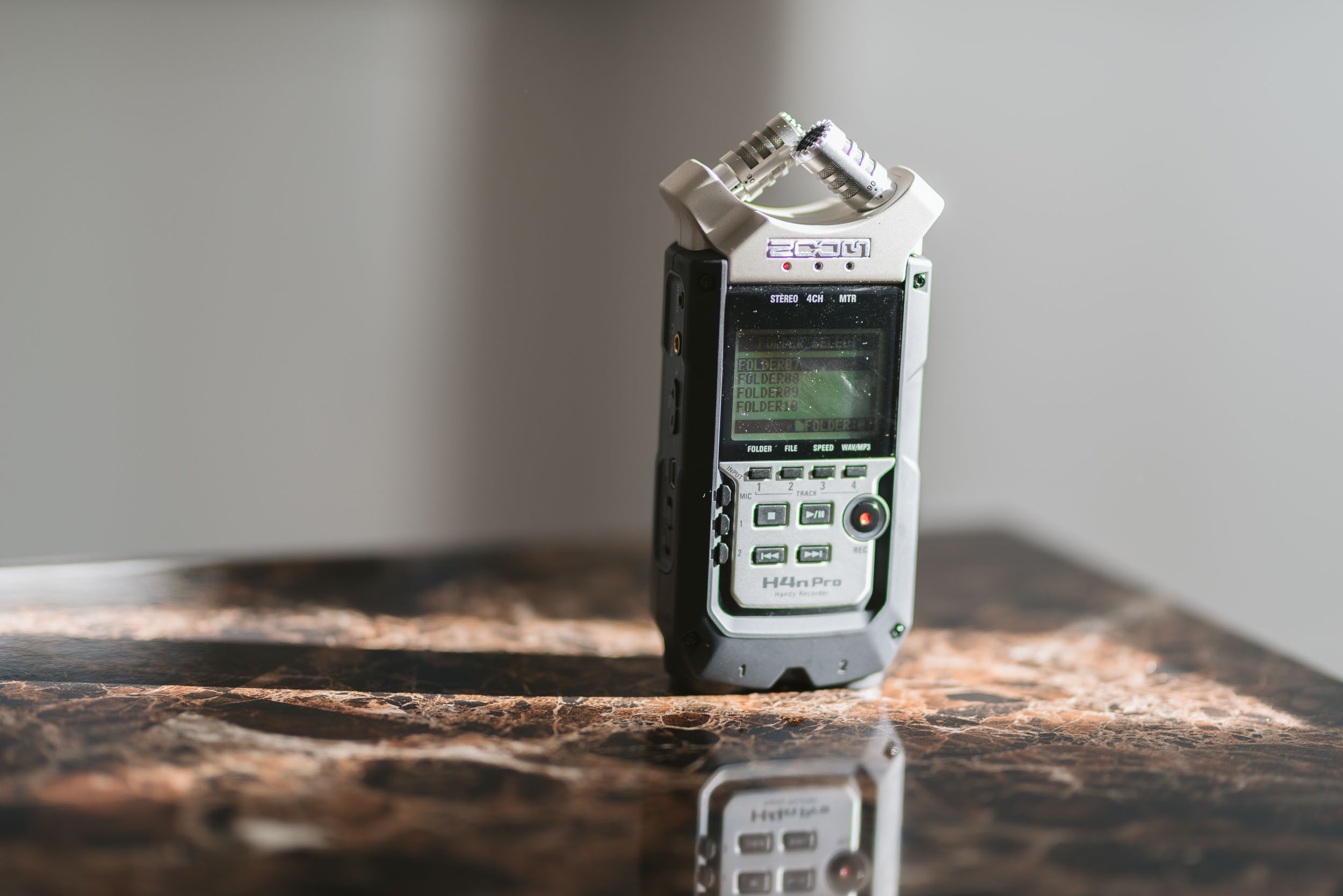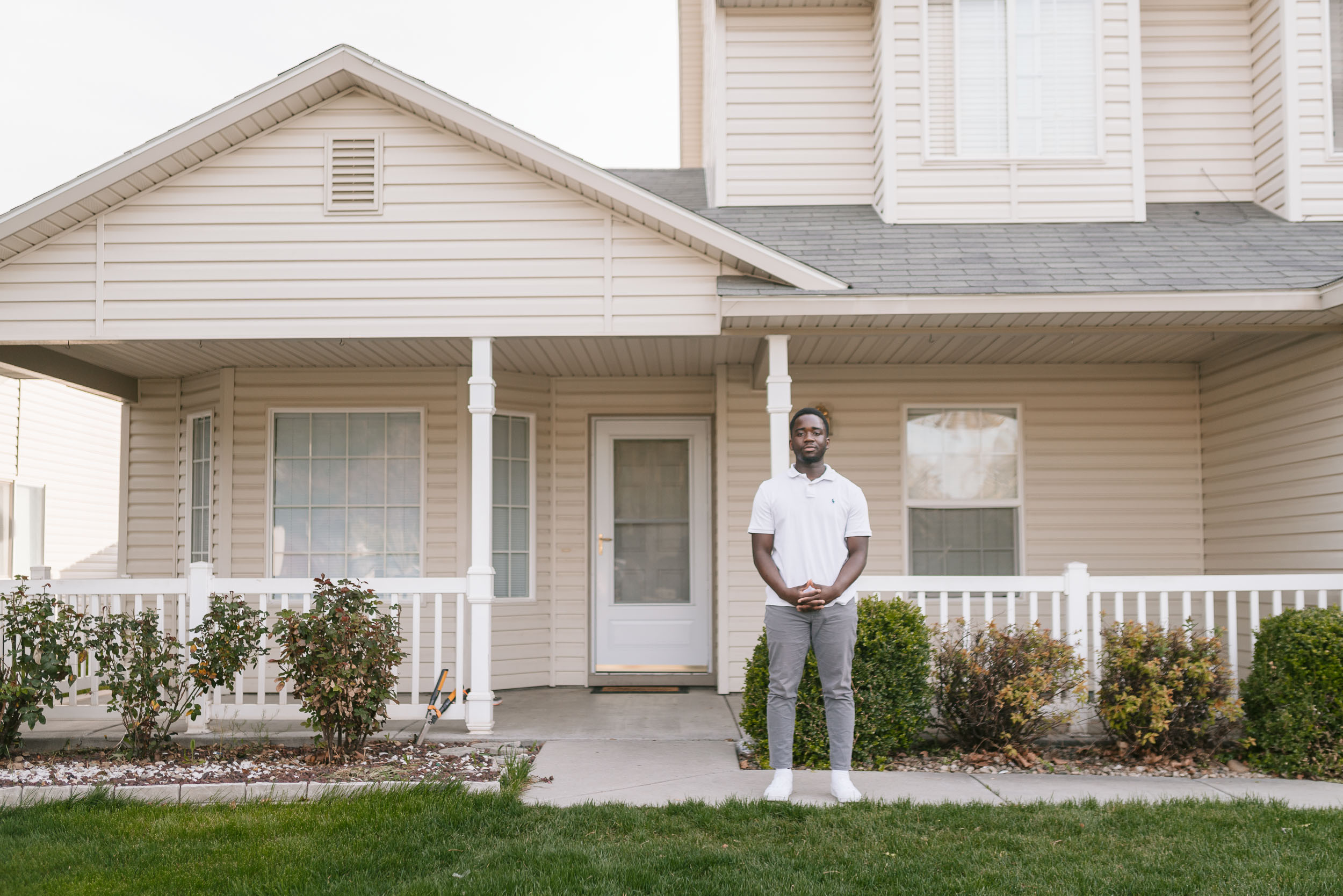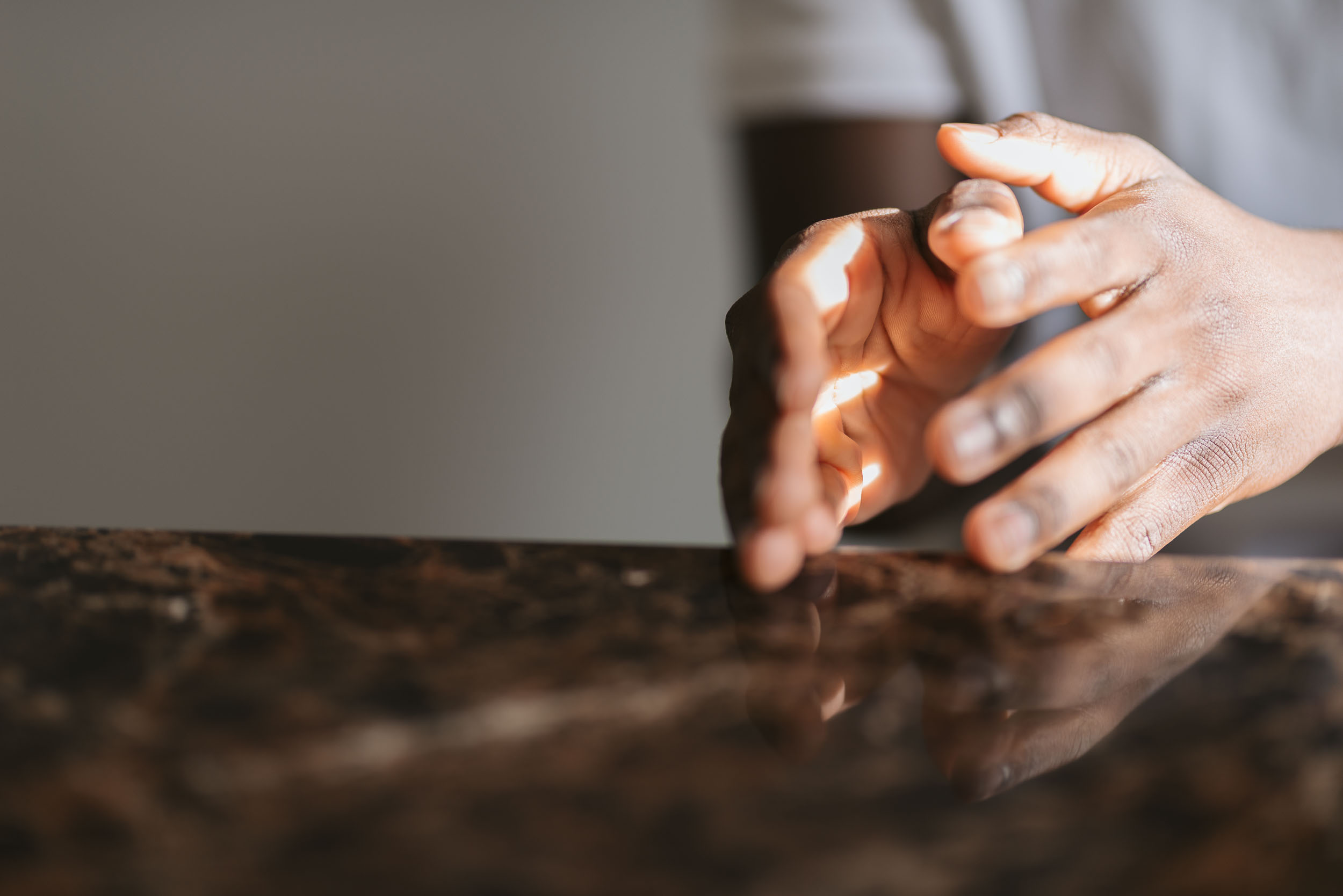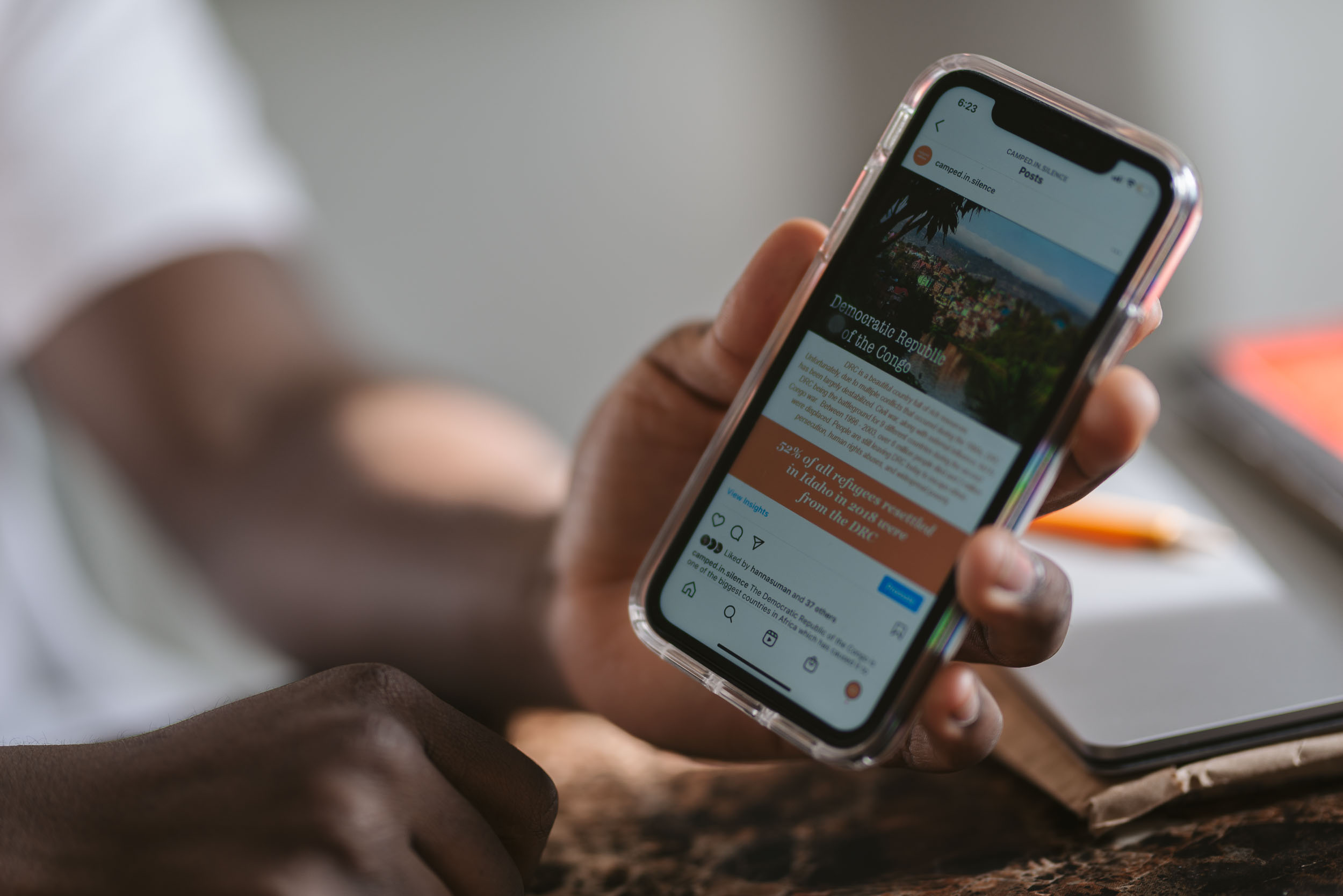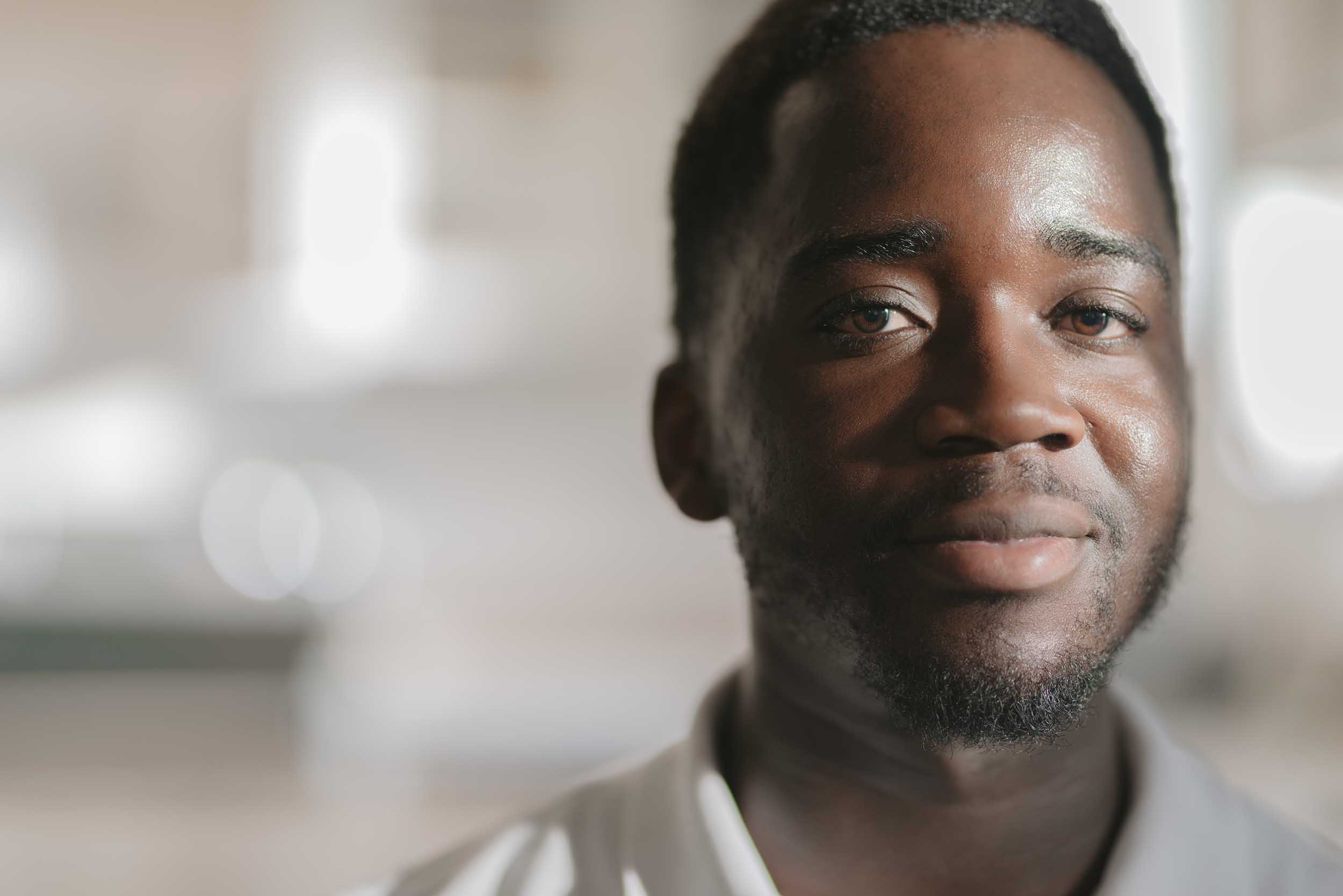Creators, Makers, & Doers: Moise Mzaliwa | Camped in Silence
Posted on 6/10/21 by Brooke Burton
Interview & Photography by Brooke Burton © Boise City Department of Arts & History
Camped in Silence, founded by Moise Mzaliwa, a recipient of an Arts & History Grant, is a platform designed to share the stories of refugees who have made the journey toward a new life. His family fled Congo when he was just six years old and he remembers his time in the refugee camp as any kid would—as just a normal part of his childhood. Moise shares with us how his perspective took a dramatic shift through the trials of learning a new language and finding his place in a new country; about barriers, biases, and friends left behind. Would he change anything? Absolutely not. He values having a broad perspective that allows him to empathize with others and that fuels his passion to help. He’s got a handle on making the most of every opportunity that comes his way. We see big things in his future and We Are So Inspired!
What is Camped in Silence?
I’m a former refugee from Congo, Africa. This project is meant to amplify the voices of refugees, immigrants, migrants, asylum seekers; to get them to share their stories and to amplify their voices. The focus is to connect people, because, ultimately, if you don’t know them, you’re going to judge them based on your biases, or preconceived notions. You won’t get to know them for who they really are.
How do you share the stories?
We have an Instagram page (@camped.in.silence) right and a YouTube page. It’s an educative platform. Here, this is Alex. He’s from Congo, just like me. We post a picture of him and a brief bio. Then we start educating people on the Congo.
To give the interview some context?
Exactly. We do interesting facts about Congolese art, music. This is another individual right here, Hanna Suman, she’s from Bosnia. She’s a graduate from [Boise State University], she’s our social media coordinator. Interesting fact, the reason she came to America is the Bosnian genocide. So Camped in Silence is an educative platform, but our main focus is to get them to speak about their story. We’re very excited.
You’ve got a good start. Let’s go back to the word camp, because the title you’ve chosen is “Camped in Silence.”
There are a lot of individuals kept within the camps and their voices are usually muffled. No one really gets to hear what they go through, what they endured. So a lot of people are not empathetic to their situation. Right?
Right. I don’t know what it’s like to be in a refugee camp. I don’t know at all.
Every camp varies. I can’t tell you how every camp is governed, but for instance, with the Kakuma camps [located in Kenya] there’s, I’m going to say districts; first district, second district, and the third district. The further away you get from the first district the more violence there is, because there are fewer officers keeping the peace.
I wonder if it’s more common for people to tell their stories later, rather than while they are in the thick of it.
Very true. That’s pretty much how we came up with “Camped in Silence.” No one really goes in there to tell the stories. But even when you come out— when I came to America as a young refugee, assimilating into a whole new culture, to a whole new lifestyle, was the hardest thing to do.
I want to hear about that.
[Chuckling] Yeah?
Tell us your story. Start at the beginning.
Yeah, so my name is Moise Mzaliwa. I was born in Congo, Africa, Uvira. My family and I fled when I was at the age of three months to Tanzania, a camp called Nyarugusu Camp. I was there for six and a half years. The majority of people will tell you life in the camp is bad, atrocious, terrible, all that. But that wasn’t the story for me. I was a kid and so that was the only environment I knew. I was ignorant to what was outside, I thought it was normal. I used to sleep on it, like, a bed made of straw, in a mud‑brick house that my dad built with his own hands. That was normal for me.
Naturally.
It was fun. I remember waking up, playing with friends, and, obviously, being disciplined for about half the stuff I did as a kid. I was stupid.
Playing and getting into trouble?
Yes. But it was the greatest time of my life. I would never go back and change those six years because it gave me a different perspective. Once I moved to America, I started realizing there are so many opportunities here that other individuals don’t get. I didn’t realize that until a couple years back.
What was it like when you finally left Congo?
So I moved to America, and I’d never seen such a beautiful place. Like I said, I used to live in a mud‑brick house. When we came here, it took a lot of adjusting. I didn’t know English, my parents didn’t know English. But luckily, my parents had—that’s why I love the Boise community—my parents had so much support that they were able, today, to literally have two houses that they manage by themselves with no other help, no governmental help whatsoever. But as for me, the school system was rough. I’m not going to say I was bullied, but because I didn’t know English in my first couple years, making friends was really hard for me. Today I suffer with—they call it imposter syndrome. A lot of refugees deal with that, too. You don’t feel like you are equipped or smart enough to speak in a certain room or with certain people. Or you feel like your voice isn’t—your voice isn’t—what’s the right word? I just feel like in certain situations I’m not as intelligent as other people, so I try to keep my voice down. That’s the part of me [affected] by growing up in the school system.
And the struggles you had there?
I have a story in the third grade; I’m a young refugee kid who barely knows English, and my teacher—I just want to go play outside for recess—pulls me aside and tells me no teacher in the fourth grade wants me, that I’m going to be held back. As a kid, I never really processed it. I just wanted to play at recess. I didn’t know what she was saying but after multiple events like that, it starts taking a toll on you.
It gets in your head and you begin to believe the message?
Exactly. Growing up, being told you’re not smart because of your accent. And I did lose my accent. Another barrier—it wasn’t my accent anymore, it became my color. Once people stopped looking at my accent, there was another barrier; my color. And if it wasn’t my color, once they find out I’m African, it’s—it’s just a lot of stereotypes.
Accent, color, culture.
It was really hard for me. I’m not going to say I overcame, but I am saying I’m overcoming, day by day. A lot of Africans deal with this every single day. It’s not ideal, but it’s realistic, it happens. A couple years back, going into my freshman year of college, I had always been told that my friends all made it out, right?
Out of the refugee camp you grew up in?
Yes, so—I was a hard kid in high school, never really cared about my future, didn’t know where I was going or what I wanted to do. I took for granted every opportunity I was given. One day my mom got a call from my auntie, and my [childhood] friend happened to be on the call too. He was still there, he had been in the refugee camp for 19 years, wishing he could be in my situation. I have so many opportunities, but I wished I could be in the next person’s situation because they had it better than me. Do you see the dilemma?
The grass is always greener?
On the other side, yes. That’s when my mindset shifted. It was like a revelation. I could have been him, left behind, right? Everything kind of started hitting me. I started taking things seriously.
That’s quite the change.
I was a hard‑headed kid. Just like any other impressionable young refugee, I looked to the media and how they portrayed African Americans and that’s how I created my own image.
You looked to the media as an example?
And it didn’t help me, whatsoever. My current path at that time wasn’t going the right way. If it wasn’t for that—
Phone call?
I never—I never would be in this situation. So that’s my thing, that you never know the opportunities you have in your life until you see the next person who wishes they could be in your shoes.
That’s a powerful lesson.
Now any opportunity I can get and any person I can meet, any story I can hear, any way that I can advance my life so I can be in a position to help the next person—
That’s really special. Not everybody can do that You have the personality for it obviously.
[Chuckling]
Why did your parents leave their original home to live in the camp?
I never got the story from my parents.
Why is that?
It’s the same with a lot of refugees; their parents don’t talk about it. It’s because of trauma.
Trauma.
My dad never speaks about it. My mom has never spoken about it.
I think that says a lot.
The school system never taught me about what happened in Congo or the history of my country. I had to dig myself. There was a first and second Congo war. You can do the research, too, if you want. A country right next to us went through a civil unrest and a majority of their rebels fled to the eastern border of Congo. A lot of chaos took place, it was really bad. I wasn’t born until 2000; my parents don’t talk about it.
Do they tell you where they moved from?
Where I was born?
Yeah.
This took at least 12 to 13 years for me to find out. Uvira. Uvira, Congo.
If they don’t talk about it, how do they feel about you talking about it?
My parents are loving and amazing people; I love them. They’re totally understanding. If I speak about it, they know it’s for a good reason.
When you described the camp and how you remember it fondly, they made a good choice for you then, huh?
It’s not a choice. If you’re a refugee, you’re not a refugee by choice. It’s a label put on you because you had to flee; it’s either you stay or you die or you—
Or you flee?
Literally that’s the only option.
Stay and be killed. Or flee? Or watch the people you love be killed or harmed.
That’s the situation out of the Congo. A lot of people were being killed or they fled, hundreds and thousands of people, like my parents.
How do you find refugees here, to interview for Camped in Silence?
It’s usually word of mouth. 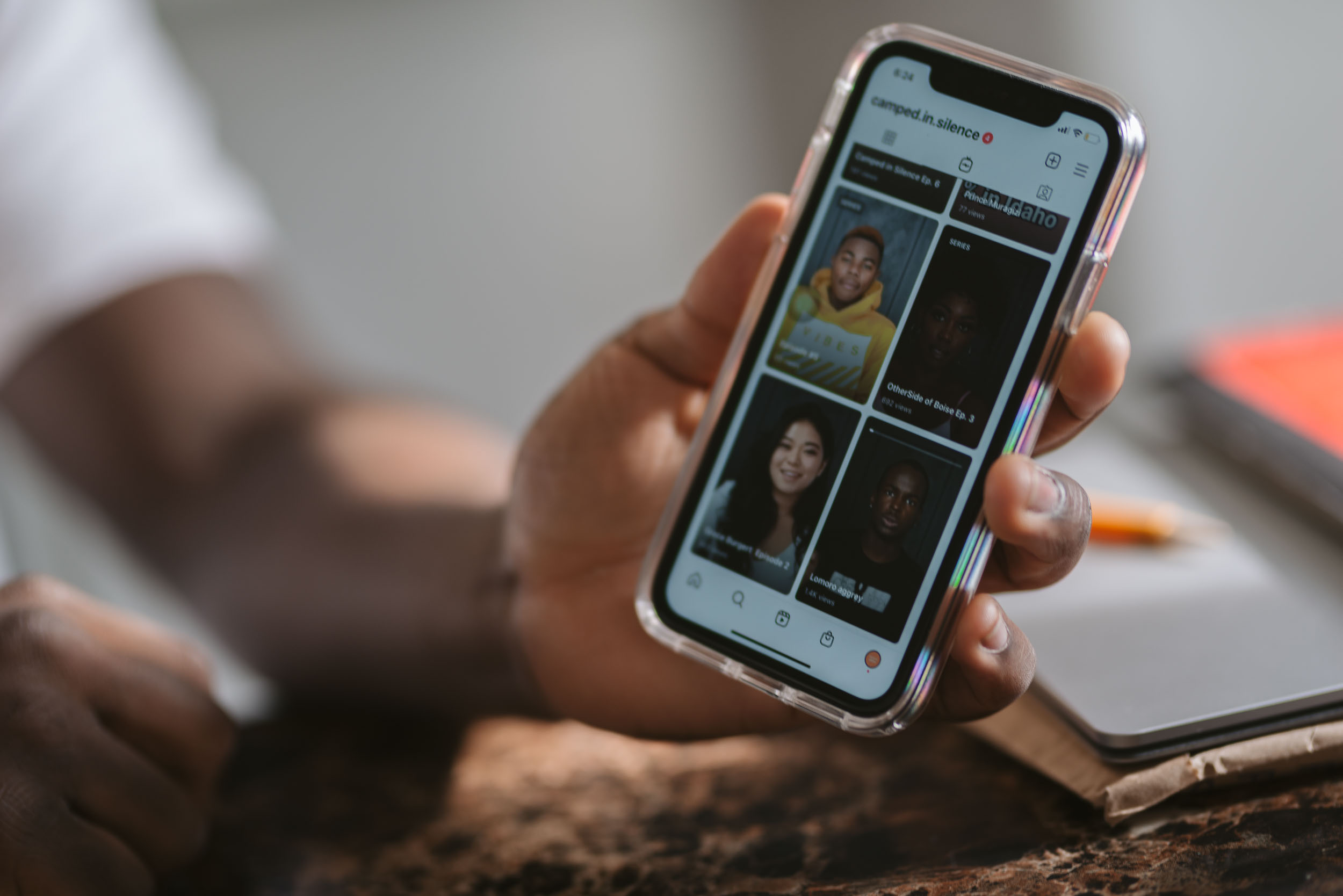
You’ve got momentum going. How much do you love that?
I love it a lot. Like I said, it’s the fact that I’m meeting new people every single day. I’m networking every single day. I’m doing something I love, and that’s talking.
You are extremely charismatic.
Oh, Thank you. Talking and listening.
And networking.
And networking, right. And it’s very beautiful because every story is different. I’m learning something new every single day, whether it’s about culture, or something about that person.
When did you realize how much you like meeting new people?
That’s a hard question. I’m not going to necessarily say this is an innate trait, like I was born with it. I just love hearing other people’s stories, where they came from, the things they endured, their sacrifices, but also to learn their dreams, their goals, their aspirations. I don’t know when it started, but I’m glad it did.
You talked about your accent as a barrier. I’m not going to lie, I wondered if there would be a language or culture barrier between us today. Because your name is foreign. Even if there had been, and there is not, we’d still have an excellent conversation, but I did wonder.
A lot of people are hesitant to talk to refugees because of that.
I’ve heard that one of the common disappointments for refugees here is that longtime residents don’t talk to them.
I’ve found myself in situations where people think they already know me, based on what they see or hear at first. If it’s an accent, automatically it’s, “Oh, unintelligent Black man,” right? If it’s no accent, but they see me dressed a certain way, if it’s street clothes, automatically “uneducated Black man” or “gangster” or whatever. There are a lot of barriers. And not just for the Black individual, it’s any minority, any Black/brown individual. But, specifically with the language barrier, it’s hard. I have my own biases too. Everybody has biases. I would like to say once you get over those biases and actually get to know a person, you get to understand that a lot of refugees are intelligent, a lot of immigrants—
They are people.
Exactly.
For me, I think a language barrier means I have to work harder.
Oh, so you’re just lazy.
Yes. [Laughter]
No, I’m kidding. I totally understand.
It is harder to have a conversation. That says a lot about me. What are some of the things you took for granted?
Education, that’s a big, big part of my life that I was taking for granted, the fact that I had the option to receive a good education and to choose whatever college I wanted and get any degree I wanted. And if not a degree, choose any career, literally, any career I want. That is the biggest opportunity anybody in the world can have. If you go back to Africa right now, kids within certain villages have to pay to get an education. And there’s always a limit on how many kids can actually get into a classroom. If you don’t sign up first or if you don’t pay the fee on time, your kid will be taken out of school. It’s hard, really hard.
Resources are limited.
Here, education, K through 12, is public, it’s free. It’s such a blessing. Having the opportunity to gain scholarships and free education post high school, a college education, that’s another huge blessing. So for me to just sit around and do nothing and waste my years, just because I can, is a big disservice to any refugee; to my parents who worked their butts off to get me here; to that friend of mine who is still in the refugee camp today, to my future family, if I have one. And my parents who will be counting on me in their later years. I’m going to need an education to support me and whatever comes ahead in my future. That’s not the only opportunity. The fact that I’m able to drive my car. The fact that I’m able to have a car. The fact that I have a nice house over my head and not a mud‑brick house and that I have a nice mattress and not a bed made of straw. The fact that I have multiple pairs of shoes and not walking around barefoot on the streets. The fact that I can speak English and have an articulate productive conversation, an educated conversation, I don’t know, any conversation—there are a lot of reasons to be thankful.
Do you have any brothers or sisters?
Yes, that’s another motivation of mine. Every step, every decision I make because—I mean, we have a collectivist culture, right?
What is a collectivist culture?
With my family, right, every decision I make is going to affect my family. Basically, if I were to do something stupid, my family would be considered stupid. That would bring shame on my family. My parents have that mindset embedded in them and passed it on to me. I’m mixed with also having an individualistic mindset, which is American.
Yes, I’m familiar.
[Laughing] Growing up, any decision I made—you know, “Moise, oh, how’s it going to affect our family?” If it’s just you being—what’s the word—selfish, wanting to gain something just for yourself, no, that’s not going to work. That’s how my family operates. How is this going to portray my family? I understand it’s all in love. For me, I’m never going to do anything if I know it’s going bring harm to my family. Even if it might bring me success, fortune, I don’t care; my family comes first. That’s the collectivist mindset. I’m blessed to have two different perspectives.
And you have plans to travel and get an even broader point of view?
My dream. I’m excited for what the future holds for me. I don’t know where it’s going to take me because I know the future is uncertain, but that’s the beauty of life.
You’ve educated me today, because when I said your parents made a good choice by going to the camp, you corrected me, “It’s not a choice.”
No. No one’s given the choice to become a refugee. It doesn’t work like that. No one’s given the choice of being an asylum seeker, an immigrant or migrant. It’s not a choice.
So, yeah, having choices—
Is what makes you, in a sense, more—
It’s a privilege.
A privilege—yes. And that’s why I would say I’m a very privileged person today. There are individuals that have more privilege than me, but I’m going to take my privileges and do the most I can with them.
West Boise
June 10, 2021
This interview has been edited and condensed for clarity.
Creators, Makers, & Doers highlights the lives and work of Boise artists and creative individuals. Selected profiles focus on individuals whose work has been supported by the Boise City Dept. of Arts & History. The views expressed in this publication are those of the individuals interviewed and do not necessarily reflect those of the City of Boise.
